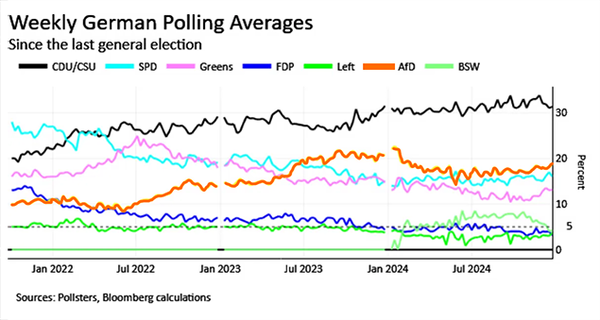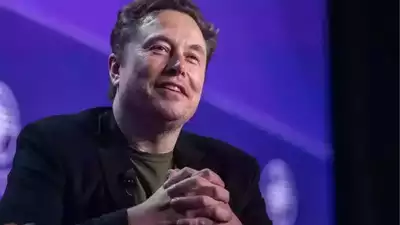Elon Musk, the world’s richest person, played a crucial role in Donald Trump’s successful bid for the presidency in 2024, significantly influencing both the financial and strategic aspects of the campaign. Musk’s financial backing was substantial, with reports indicating he contributed approximately $200 million through his political action committee, America PAC.
Musk also leveraged his ownership of the social media platform X (formerly Twitter) to amplify Trump’s messaging, effectively transforming X into a megaphone for MAGA views.
Beyond financial contributions, Musk’s engagement with voters and direct involvement in campaign activities marked him as a key player in Trump’s resurgence. He participated in rallies and publicly endorsed Trump, emphasizing the importance of the election and urging his followers to vote
Additionally, Musk’s influence was leveraged to shape Trump’s transition team and policy direction, particularly with his potential involvement in a “Department of Government Efficiency” aimed at slashing federal spending.
Driving the news
- After his active role in US polls, Musk is trying to sway the public opinion in Germany’s elections too.
- Germany, once the European Union’s symbol of stability, is veering into uncharted political territory. A nation traditionally governed by moderate consensus now faces the twin specters of rising populism on the right and resurgent radicalism on the left.
- Musk’s endorsement of the far-right
Alternative for Germany (AfD) has upended the political landscape ahead of Germany’s snap elections on February 23. His op-ed inWelt am Sonntag proclaimed theAfD as Germany’s “last spark of hope,” triggering a political firestorm and the resignation of the newspaper’s opinion editor. - Musk, who owns Tesla and social media platform X, argued that the AfD represents “political realism” and a necessary response to what he described as Germany’s economic and cultural decline.
Why it matters
- Germany is not just the EU’s largest economy; it is also a political bellwether for the continent. A dramatic shift in its political landscape could destabilize the European Union’s cohesion on critical issues like migration, defense, and fiscal policy.
- The AfD is polling at 19%, making it the second-strongest party nationally, while traditional centrist parties—the Social Democrats (SPD) and the Christian Democratic Union (CDU)—struggle to retain voter confidence.
- A close ally of US President-elect Donald Trump, Musk’s endorsement of the AfD suggests alignment with a populist wave that spans continents. During Trump’s first term, his administration courted European populists, including Germany’s far-right, as part of a broader strategy to undermine the EU. With Trump poised to return to power, Musk’s foray into German politics could presage deeper disruptions.

Zoom in
- Musk’s op-ed framed the AfD not as an extremist party but as a champion of ordinary Germans frustrated by rising costs, high taxes, and what he called the “globalist agenda” of the establishment. He dismissed claims of extremism, citing AfD leader Alice Weidel’s same-sex partnership with a Sri Lankan as evidence that the party cannot be categorized as far-right in the traditional sense.
- The fallout was immediate.
- Friedrich Merz, leader of the CDU and a front-runner for chancellor, denounced Musk’s commentary as “intrusive and presumptuous,” warning that the AfD’s anti-EU agenda would harm Germany’s economy.
- Chancellor Olaf Scholz joined the chorus of criticism, accusing Musk of spreading dangerous rhetoric. “Freedom of speech,” Scholz said, “also means you can say things that are not right and do not contain good political advice.”
- The controversy also rocked German media. Welt am Sonntag’s opinion editor, Eva Marie Kogel, resigned in protest, stating on X (formerly Twitter) that she could not support the decision to platform Musk’s views. The German Association of Journalists criticized the op-ed as “election advertising.
The big picture
- Germany’s political shift is rooted in deepening economic woes and growing disillusionment with the mainstream. Long a beacon of stability in Europe, the country is grappling with multiple crises:
- Inflation and energy costs: Germany’s reliance on Russian gas left it vulnerable when supplies were cut off. Energy prices have soared, squeezing households and businesses.
- Economic stagnation: With factory orders dropping and small businesses struggling, Germany’s vaunted economic engine is sputtering. Many voters feel abandoned by traditional parties that were expected to maintain prosperity.
- Polarization: These frustrations are fueling support for populist alternatives on both the left and right.
- The AfD has capitalized on these dynamics, portraying itself as a voice for ordinary Germans. The party has gained traction in the former East Germany, where economic disparities and dissatisfaction with Berlin’s leadership run deep. However, it is not alone. Sahra Wagenknecht, a prominent left-wing politician, is forming a new party aimed at disillusioned working-class voters. By combining critiques of neoliberalism with populist rhetoric, she hopes to peel support away from both the SPD and the Greens.
What they’re saying
- Musk’s critics argue that his involvement reflects an alarming trend of billionaire interference in democratic processes. Saskia Esken, co-leader of the SPD, said Musk’s remarks revealed a disdain for democratic values: “Our democracy is defensible and cannot be bought.”
- Merz took aim at Musk’s claims of economic expertise, pointing out that Tesla’s factory near Berlin faced stiff opposition from the AfD during its approval process. “The AfD’s policies would harm the very industries Musk claims to champion,” he said.
- Even within Welt am Sonntag, Musk’s op-ed was met with resistance. Jan Philipp Burgard, the newspaper’s incoming editor-in-chief, published a rebuttal alongside Musk’s piece, calling the AfD “a danger to our values and our economy.”
- Olaf Scholz, German Chancellor: Without naming Musk, Scholz rebuked attempts to influence Germany’s election. “It won’t be the person who yells loudest who will decide where Germany goes from here. Rather, that will be up to the vast majority of reasonable and decent people.”
- Robert Habeck, Chancellor Candidate for the Greens: Habeck accused Musk of undermining European democracy for personal gain. “When Elon Musk … calls for the AfD to be elected, it is not out of ignorance … it has logic and system. A weak Europe is in the interests of those for whom regulation is an unreasonable limit to their power.”
- Frank-Walter Steinmeier, German President: Steinmeier warned against external interference in elections, citing Musk’s platform as a notable source. “Be it covert … or open and blatant, as is currently being practiced particularly intensively on the X platform.”
Between the lines
- Musk’s endorsement of the AfD is part of a broader narrative in which populist movements are gaining traction globally. In Europe, the rise of figures like Italy’s Giorgia Meloni and the Netherlands’ Geert Wilders underscores a shift away from centrist politics. Germany, long immune to these forces, is now experiencing its own populist wave.
- The AfD’s success raises questions about the future of Germany’s democracy. Though the party is unlikely to form a government—mainstream parties refuse to work with it—its growing influence could fracture the political landscape, making coalition-building increasingly complex.
- Meanwhile, Wagenknecht’s new party adds another layer of unpredictability. If she draws significant support from left-leaning voters, the SPD and Greens could struggle to maintain their relevance, further weakening Germany’s traditional party system.
What’s next
Germany’s snap election on February 23 will be a critical test of these dynamics. Early polls suggest the CDU is leading with 31%, but the AfD’s rise could make it the largest opposition party, giving it unprecedented influence in parliament.
If the AfD and Wagenknecht’s party continue to gain ground, the once-stable two- or three-party system could collapse into a fragmented array of political factions. This would not only complicate governance in Berlin but also ripple through the EU, where Germany’s leadership has traditionally been a stabilizing force.
(With inputs from agencies)




